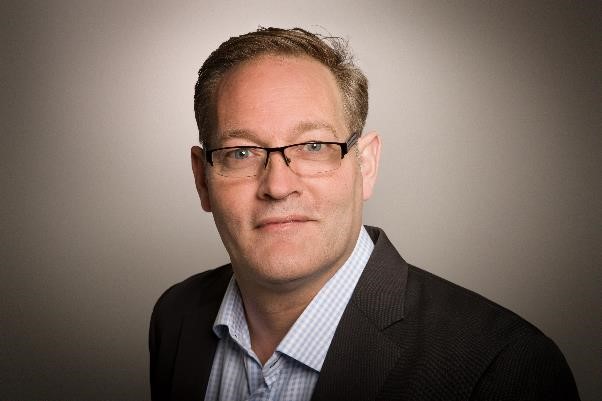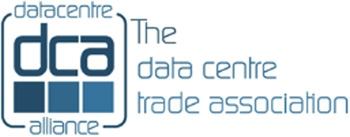GDPR & your privacy.
Your privacy as a member is important to us. Recently, rules surrounding privacy have changed, so we have created this manifest for you to read and accept.
It is not possible for you to be classed as an authentic member of the DCA unless you accept the terms, that includes but is not limited to the GDPR statement below.
Please read the privacy policy here.
Introducing Data Centre Alliance Special Interest Groups

DCA CEO - Steve Hone
The DCA was formed over 10 years ago, following consultation between industry leaders the DTI, RDA and EU Commission. The aim was to create a trade association which was completely inclusive, independent and vendor neutral that would represent the interests of the entire data centre community. This includes private data centre/server room owners, consumers of data centre 3rd party services and suppliers providing products and services to the data centre sector. The DCA continues to evolve and adapt to support both its members and the sector.
Through The DCA, organisations operating their own data centres and server rooms can access trusted information on the benefits of adopting best practice and in turn learn more about the products and services available to them. This supports them as they strive to drive down operational costs and increase the efficiency of their IT assets in support of their business goals.
One of the many ways a Partner can be to be heard and raise their profile in the DC Sector is to become a member of one of the DCA’s Special Interest Groups or SIG’s. There are currently nine DCA SIG’s; each one focuses on a key area of interest. Each SIG is headed up by a ‘Chair’ with a neutral but good knowledge of the area of focus. The Chairs aim to guide the groups and to ensure agreed outcomes are achieved which will collectively benefit the sector.
The SIG Chairs also make up the DCA Technical Council. The purpose of the DCA Technical Council is to encourage and foster collaboration between fellow members and industry experts to provide:
- Consumer guidance and confidence,
- Promote the use of best practice in all its forms
- Contribute to the development of Standards,
- Encourage research and innovation
- Communicate the vital and valuable role that DC’s have in supplying digital services
Over the next year the DCA will be providing updates on each of the Special Interest Groups, this will include a comment from the Chairs detailing the groups achievements to date and plans going forward, this will also be provided as a summary video interview, finally two articles from Group members related to the SIG Topic will also be available to provide additional background information and to allow knowledge sharing. Look out for the monthly updates in Digitalisation World.
DCA Special Interest Groups include:
- Colocation Working Group
- Data Centre Commissioning SIG
- Energy Efficiency SIG
- Sustainability SIG
- Anti-Contamination, Filtration & Cleaning SIG
- Certifications Requirements Working Group
- Physical Access and Cyber Security SIG
- Workforce Capability & Development SIG
- Thermal Management SIG
Overview of DCA SIG Group
Colocation Working Group
Chaired by Dan Scarbrough, MD at RockScar Ltd
The purpose of the DCA Colocation Working Group, chaired by Dan Scarbrough, with Leon O'Neill acting as Deputy Chair is to provide a unified voice for the UK Plc data centre colocation and Data Centre Provider community.
The objective is to:
- Educating international buying community to the operators present in the UK, and the services offered.
- Increase awareness of the importance of the data centre sector in an ever growing and reliant digital world.
- Drive the debate for increased inward investment to support the growing and mission critical data centre sector.
- Promote UK colocation capacity by arranging DC Tours for overseas customers.
- Develop closer collaboration between the Telco with Colo sectors in terms of Network and Compute Capacity.
- Continue to work with fellow Trade Bodies in Europe to ensure the DC sector has a unified voice to policy makers.
- Coordinate stronger working relationships with external international organisations such as OCP, ONF.
- Lobby to develop incentives to make the UK the destination of choice for hosting overseas customers digital services.
Data Centre Commissioning SIG
Chaired by Prof. Ian Bitterlin, Consulting Engineer & formerly Visiting Professor, University of Leeds
All buildings undergo commissioning or tenant checks prior to the new owners taking possession or new tenants moving in, these checks ensure that all building systems (fire, security, environmental and IT systems) are working and meet the required specifications; in a mission critical facility such as a data centre these IST checks are of paramount importance.
The Data Centre Commissioning Special Interest Group (SIG) has therefore been formed to increase awareness of the best practices which should be adopted to mitigate risk of failure and optimise the chances of project success.
DCA Energy Efficiency SIG
Chaired by John Booth, BSc (Hons) Tech (Open), CDCAP, MBCS, Visiting Lecturer, Birmingham City University, TCT7/3 EUCOC, SDIA
All Data centres use energy, in some cases significant amounts, and globally there is an increasing focus on data centre energy consumption and as a result, pressure from consumers, business and governments to do more to reduce data centre energy use.
The Energy Efficiency SIG (one of the longest standing DCA SIGs) has in the past kept a close eye on ISO standards (ISO30134, ISO22237), European Standards, (the EN 50600 series) and the EU Code of Conduct for Data Centres (Energy Efficiency) best practices. Committee members represent the DCA on the appropriate standing committees for all the standards mentioned.
The Energy Efficiency SIG used to also have Sustainability in its title but due to its increasing importance this has now become a separate group. So, the Energy Efficiency SIG focus has changed somewhat and, in the future, will maintain its watching brief on the Standards, but also look at heat extraction and cooling solutions in the data centre where they touch on smart cities, waste heat re-use options and energy flexibility solutions.
The EE SIG is in the process of developing an energy efficiency guide that will be published by the DCA.
The Energy Efficiency SIG is the first port of call for all thing’s energy related in the Data Centre and works closely with other SIGs such as the Sustainability, Thermal Management, Commissioning and Certifications Groups.
Sustainability SIG
Chaired by Astrid Wynne, Sustainability Manager at Techbuyer
The purpose of the Sustainability Special Interest Group is to develop best practice in the UK data centre industry with respect to materials usage, energy efficiency, skills development and workforce retention in an operational data centre environment
The group aims to achieve this through:
- optimising energy efficiency at use phase
- expert insight into IT hardware and the effect on energy draw
- insight into the role of IT load with respect to this, including
a. the effect of full utilisation on efficiency as measured by compute power over energy
b. the ability of software to dematerialise hardware
c. minimising data transfer and storage, potentially leading to a sector Code of Conduct
- an understanding of the importance of Scope 3 emissions (also known as embodied energy) in the hardware, facility and building
- circular solutions for the IT hardware and other infrastructure
- circular solutions for heat, power and IT load
- use of renewable energy in the sector
- new technologies that can aid this
- existing and upcoming standards relating to this
- education of workforce with respect to sustainability insight and practice
Anti-Contamination, Filtration & Cleaning SIG
Chaired by Gary Hall, Operations Director at Critical Facilities Solutions UK
The DCA - Anti Contamination, Filtration & Cleaning SIG is chaired by Gary Hall of Critical Facilities Solutions.
This SIG discusses, advises and recommends practical solutions on the control of dust, dirt and contamination. Preventing damage to equipment; loss of data and conservation of energy.
This SIG has been very active for the last two years and have produced two Anti-Contamination Guides, Covid-19 Information – Advice on keeping Data Centres clean and Safe, EU Code of Conduct for Data Centre (Energy Efficiency) 3.2.12 – Manage Air Quality, Information on Data Centre Cleaning – Q&A, Future of Data Centre Cleaning and Data Centre Cleaning Selection.
Certifications Requirements Working Group
Chaired by Steve Hone, CEO DCA
The DCA Certification Group work to review and update the base line criteria for the DCA Certification Scheme. They monitor the Standards Development Organisations (SDOs), the EU Code of Conduct for Data Centres (Energy Efficiency) best practices committees, and the outputs of the other DCA SIGs to formulate the assessment criteria for the scheme.
Members review the individual standards, best practices and guidelines on an annual basis or when significant revisions to the baseline criteria are required as a result of external activity, for instance the publication of a new or revision to an existing standard, this ensures that the DCA Certification is always up to date and is viable for external parties and owners and operators to adopt at a reasonable cost.
The assessment criteria is currently based upon the ISO 30134 series of Data Centre KPI’s, the EN 50600 series of Data Centre Design, Build and Operate standards, the EU Code of Conduct for Data Centres (Energy Efficiency) and the outputs of the DCA – Anti Contamination, Filtration and Cleaning SIG (Cleaning Regime) and DCA Commissioning SIG (Mains Utility Failure Test).
Membership is by invitation only.
Physical Access and Cyber Security SIG
Chaired by Richard Pearman, General Manager, Diversified Technologies at Southco, Inc.
The DCA Physical Access and Cyber Security SIG is aimed at security professionals working in the Data Centre Sector.
The Physical Access and Cyber Security SIG formally the Site Access Control & Security Steering Group was set up to collaborate on best practice, standards and guidelines on data centre physical security, access control and crucially important topic of Cyber Security.
Physical security includes important items such as fencing, gating, anti-intrusion defence, man and vehicle traps, biometric and PIN access controls, surveillance, security process and management, rack security caging, personnel background checks and associated systems.
Workforce Capability & Development SIG
Chaired by Steve Bowes-Phipps, Senior Data Centre Consultant at PTS Consulting and DCA Advisory Board Member
The digital services economy is now a vital part of the backbone of life; enabling enterprise, joining up communities and supporting new ways of living, working and playing, as evidenced during the Covid-19 pandemic. Yet, hardly anyone, when asked, selected the Data Centre sector as a career destination of choice, and places of learning (schools, colleges, universities) know little about it and are therefore unable to prepare tomorrow’s generations of Data Centre engineers/sales & marketing/product development/etc. for the incredible demand for talent that exists now and for the foreseeable future.
So the Workforce Capability and Development Special Interest Group (SIG) is a place where anyone who has an interest in this or ideas to share, can come and look at concrete and tangible ways of providing signposting to resources, reaching out to schools, universities, etc and developing an annual ten point plan for increasing inclusion, diversity and raising awareness of both what Data Centres are, why they are so important and the fantastic range and value of jobs that exist within the digital infrastructure economy. Too much is being done in silos and this is only going to be fixed by working together on solutions, to quote Spock in Start Trek ‘the needs of the many, outweigh the needs of the few’.
Thermal Management SIG
Chaired by Dr Jon Summers, Scientific Lead in Data Centres at RI.SE. and DCA Advisory Board Member
Today there are literally millions of traditional air-based cooling systems in data centres and server rooms of all shapes and sizes around the globe and given their prevalence this is unlikely to change for many years to come.
There is no shortage of research going into the optimisation of these air-based systems as the pressure to increase performance and energy effectiveness continues to grow. This has resulted in the development of not only free air cooling, which increases in popularity where external environmental conditions allow, but also a comprehensive range of indirect hybrid solutions that offer even greater flexibility and potential cost savings. Increased environmental pressures have also seen research and development increase into the prospects of harvesting and reusing the waste heat produced by the server/compute components.
Simple physics dictates that at some point an air-based system, irrespective of however efficient you make it, will be challenged by implementation practicalities. As processing speeds and power densities continue to steadily rise, there is an increasing interest in the adoption of liquids as the thermal energy transfer medium, which includes technologies based on direct to chip/CPU cooling through to fully Immersed and double immersed liquid cooling solutions.
One thing you will quickly learn is that “No one solution fits all applications” and as a result, unless you know exactly what you need, the landscape quickly becomes confusing. The Thermal Management Special Interest Group has been formed to assist consumers with understanding their options so more informed decisions on what is best for your own business needs can be made.
To find out more about The DCA and its SIG’s please contact: [email protected], visit www.dca-global.org/groups or call us on +44 (0)845 873 4587
+ 44 (0)845 873 4587
[email protected]



